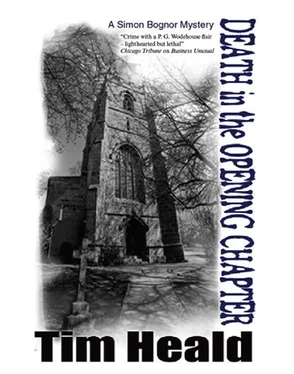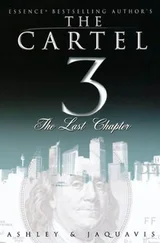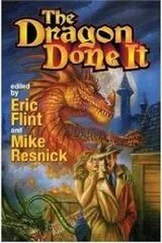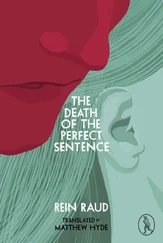Tim Heald - Death in the opening chapter
Здесь есть возможность читать онлайн «Tim Heald - Death in the opening chapter» весь текст электронной книги совершенно бесплатно (целиком полную версию без сокращений). В некоторых случаях можно слушать аудио, скачать через торрент в формате fb2 и присутствует краткое содержание. Жанр: Криминальный детектив, на английском языке. Описание произведения, (предисловие) а так же отзывы посетителей доступны на портале библиотеки ЛибКат.
- Название:Death in the opening chapter
- Автор:
- Жанр:
- Год:неизвестен
- ISBN:нет данных
- Рейтинг книги:5 / 5. Голосов: 1
-
Избранное:Добавить в избранное
- Отзывы:
-
Ваша оценка:
- 100
- 1
- 2
- 3
- 4
- 5
Death in the opening chapter: краткое содержание, описание и аннотация
Предлагаем к чтению аннотацию, описание, краткое содержание или предисловие (зависит от того, что написал сам автор книги «Death in the opening chapter»). Если вы не нашли необходимую информацию о книге — напишите в комментариях, мы постараемся отыскать её.
Death in the opening chapter — читать онлайн бесплатно полную книгу (весь текст) целиком
Ниже представлен текст книги, разбитый по страницам. Система сохранения места последней прочитанной страницы, позволяет с удобством читать онлайн бесплатно книгу «Death in the opening chapter», без необходимости каждый раз заново искать на чём Вы остановились. Поставьте закладку, и сможете в любой момент перейти на страницу, на которой закончили чтение.
Интервал:
Закладка:
He found himself reflecting thus, as he stood in St Teath’s that day. He was in the presence of death, and he felt it. The sense of doom and finality was visceral, and was enhanced by his surroundings. It didn’t matter that the Church, which used to be so central, had grown peripheral and unimportant. It had, for years, been a vital part of being a person. One was christened in church, one was married in church, one’s funeral was held in church. It marked one’s beginning and one’s end, and also, more importantly, it was part of one’s routine. Even in Bognor’s childhood, it had been a regular Sunday ritual, and in childhood the day had begun and ended with prayers. In the morning, it was school chapels, and in the evening, it tended to be smaller house dining rooms. But it was a part of life, as essential a part as anything, and even though he, like so many, had lapsed, it remained with him for ever and he respected, sometimes loved, the noise it made.
The fact that the dead man was ordained and had died in his own church, gave the whole event a majesty that would otherwise have been lacking, even though Sir Branwell found the mystery an affront to his sense of order and tidiness, rather than something apocalyptic. One would have thought that Bognor, much of whose business was death and who dealt with it most days of his life, would have become inured to the whole idea. Instead of that, however, it was he who was still in awe of the end of life, and men like Sir Branwell who regarded it essentially as a tiresome disruption of routine. Sir Branwell and Lady Fludd had never even seen a dead body. The same was true of most English people of their generation. It was lack of familiarity which bred contempt. Familiarity induced awe, respect and fear. It made Bognor fanatical about truth and justice, and led him to do his best to eradicate murder from the vocabulary. For most people, death was little more than an inconvenience. Bognor was a traditionalist in such matters.
He was reflecting on conservatism, mortality and meaning, when he sensed movement behind him and realized that Bishop Ebb had arrived early. He was wearing grey flannel bags, a tweed jacket along with a purple vest, and an enormous and showily bling pectoral cross.
‘Well,’ said the bishop, ‘he moves in mysterious ways his wonders to perform. I hadn’t intended to be here until I got Branwell’s SOS, but now our paths cross once more. You’re the silver lining to a deep black cloud. Welcome to St Teath’s.’
And he shook Bognor by the hand. Warmly. Bognor had experienced enough cool handshakes in his life to recognize the difference. The bishop smiled with his eyes too, and he exuded warmth. Some, possibly even most, episcopal personages were cold to the point of cadaverousness, but not Ebenezer Lymington. You wanted to snuggle up to him and bask.
‘Nice to see you, Bishop,’ said Bognor. ‘Sorry about the circumstances, but still good to see you around.’
It was indeed good to have a senior man of God around, and one who could not possibly be a suspect. No Reverend Green, no lead piping in the library, no spanner in the conservatory. Colonel Mustard, Miss Scarlet, Professor Plum: all possible. But not Bishop Ebb. His alibi was perfect, quite apart from the fact that he was far too saintly. Loren Estelman or Sarah Paretsky might have had a killer prelate in the mean streets of Detroit or Chicago, but no such person would disfigure the pages of a mystery set in rural England. The bishop didn’t do it. And in England, couldn’t. Not so elsewhere.
‘So, penny for your thoughts,’ said the Rt Rev. Ebenezer. ‘Our friend the Lord Lieutenant would have us believe that Sebastian killed himself. He could be right, even if his reasons are wrong. It wouldn’t be the first time that’s happened. Sir Branwell doesn’t like anything to interfere with the status quo, but, in my experience, life and death aren’t like that. They say that God’s joke is men making plans for the future. There’s a lot in that. I have predicated my life on the notion that tomorrow is an illusion and that one is constantly taken by surprise. It’s the only way to retain a semblance of control. Branwell believes that if you talk slowly and loudly enough, everything will pan out according to his wishes.’
‘And sometimes that happens,’ said Bognor.
‘That’s what I mean about being right for the wrong reasons,’ said the bishop. ‘It all comes down to God moving in mysterious ways his wonders to perform. They are wonders, He is mysterious. That’s part of the point. If it was all clear-cut and logical, we’d all be like Dawkins, which would be very boring.’
‘Up to a point,’ he said.
The bishop ignored this.
‘Like you,’ he said, ‘I’d like to see a result, and the right one as well. I don’t happen to think Sebastian killed himself. But there you go. I also don’t believe in sweeping things under the carpet. My God is a messy God. It’s one of the reasons I worship him.’
He paused. Bognor reflected that he liked the bishop.
‘Christianity,’ continued His Grace, ‘requires an act of faith. An awful lot of people, on both sides of the fence, don’t understand this. If it were a question of logic, none of us would be Christians. It doesn’t make what we laughingly call “sense”. That’s why we talk about “faith” and “belief?”. You have to have one and suspend the other, if you’re going to belong to the church.’
‘Then why,’ asked Bognor, who tended to just such an irrational subscription to the established church, ‘do so many churchmen, prelates such as you, try to justify Christianity as if it were, well, defensible?’
Bishop Ebb rolled his eyes and splayed his hands.
‘That’s their decision!’ he said. ‘I think they play into the hands of atheists and agnostics, but there you are. It’s up to them. I believe that belief requires a leap of faith.’
‘I see,’ said Bognor, not seeing anything at all, but feeling that some sort of vision was expected.
‘And it was a leap that poor dead Sebastian was finding increasingly difficult.’
‘ Really? ’
‘Yes, really. We’d discussed the matter several times in the last few weeks and months. Sebastian was concerned that he was losing his vocation.’ The bishop sighed. ‘Which is one reason why I am retaining an open mind on the subject of his death. Suicide for a man of the cloth is particularly dreadful. So’s loss of faith for an ordained minister. Bad enough for anyone, but, for someone in Sebastian’s position, a particularly difficult – and lonely place – in which to be.’
‘He shouldn’t have been lonely. There was you, his flock, his wife.’
‘Alas, poor Dorcas!’ said the bishop in sepulchral tones, accompanied by the eye-rolling, both of which Bognor was beginning to find a touch irritating, fond of Ebenezer though he was.
‘Why “poor Dorcas”?’ asked Bognor, wondering if he was right to follow the advice about searching for the femme, if the femme was Dorcas, or whether there was another femme involved. Fatale, presumably.
‘Let us just say,’ said Ebenezer Lariat, ‘that Sebastian’s relationship with his wife was deteriorating as rapidly as that with his Lord and Master.’
Bognor said nothing. There was nothing much to say. Internally, however, cogs were whirring.
NINE
The Bognors’ bedroom belonged to another era. It was enormous, and the bed was a four-poster, which needed the hot-water bottles scrupulously filled and inserted under the sheets every night by Peggoty Brandon. The walls were hung with pictures to do with hunting and the Fludds – caricatures of previous baronets in the manner of Spy, with Fludds in pink, dogs lolloping along with tongues hanging out, jovial looking men on horseback, and the occasional fox, glimpsed from afar. The central heating existed, but was ancient and perfunctory, the windows leaked and there was a damp patch on the ceiling and a bucket on the floor. The patch grew wetter in bad weather and the bucket filled. There were two high-backed Victorian armchairs on either side of the fire, which was always laid and sometimes lit. There was a bottle of Malvern water and two glasses, also, because the Bognors were the Bognors and the Fludds the Fludds, a decanter of Scotch. This was not normally provided for guests; the Malvern water was.
Читать дальшеИнтервал:
Закладка:
Похожие книги на «Death in the opening chapter»
Представляем Вашему вниманию похожие книги на «Death in the opening chapter» списком для выбора. Мы отобрали схожую по названию и смыслу литературу в надежде предоставить читателям больше вариантов отыскать новые, интересные, ещё непрочитанные произведения.
Обсуждение, отзывы о книге «Death in the opening chapter» и просто собственные мнения читателей. Оставьте ваши комментарии, напишите, что Вы думаете о произведении, его смысле или главных героях. Укажите что конкретно понравилось, а что нет, и почему Вы так считаете.












